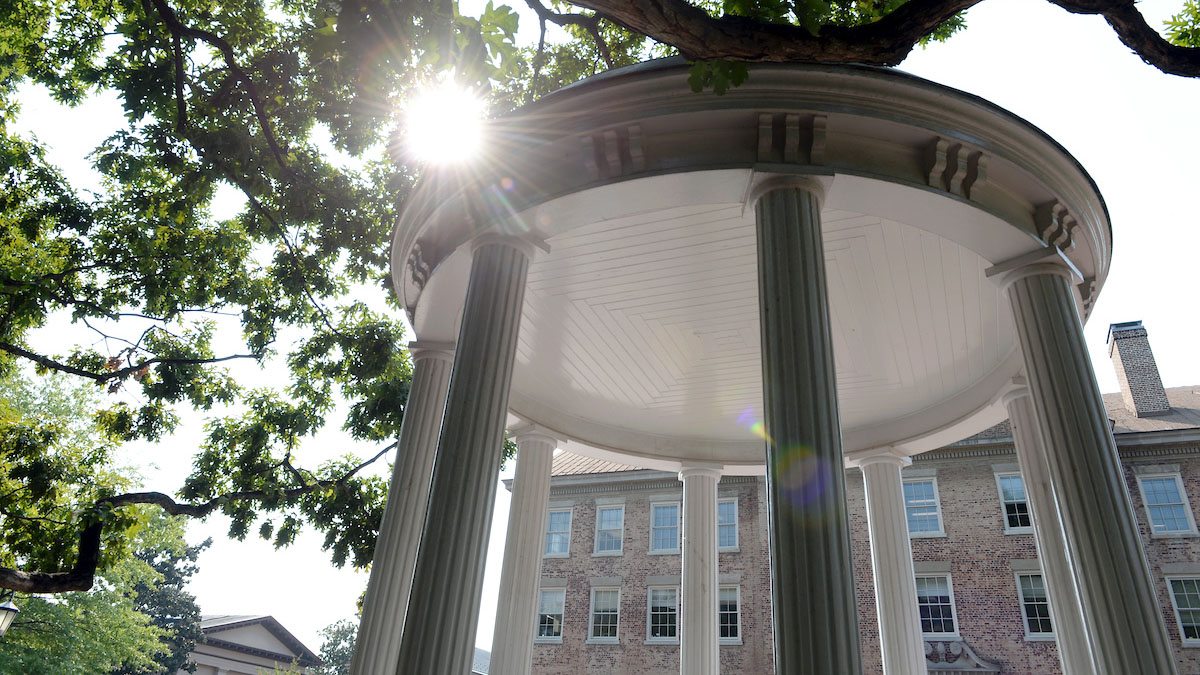UNC-Chapel Hill, Duke to be awarded up to $50 million from the FDA for new research center
Triangle CERSI will work with FDA scientists to perform cutting edge scientific research to better inform and support the FDA’s needs.

The U.S. Food and Drug Administration will award up to $50 million over five years to the University of North Carolina at Chapel Hill and Duke University to establish the Research Triangle Center of Excellence in Regulatory Science and Innovation. The center will also involve collaborations with North Carolina State University and North Carolina Central University, a leading historically black university.
Triangle CERSI, the newest of only five CERSIs across the country, will work with FDA scientists to perform cutting edge scientific research to better inform and support the FDA’s needs. The four other FDA-funded CERSIs include the University of Maryland, the University of California at San Francisco in partnership with Stanford University, Johns Hopkins University, and Yale University in partnership with Mayo Clinic.
Along with principal investigator Paul Watkins, M.D., Howard Q. Ferguson Distinguished Professor of Pharmacy at the UNC Eshelman School of Pharmacy and professor at the UNC School of Medicine and the UNC Gillings School of Global Public Health, three principal investigators from Duke proposed the creation of the Triangle CERSI: Susan Halabi, Ph.D., James B. Duke Distinguished Professor of biostatistics and bioinformatics and co-chief for the division of biostatistics at Duke University School of Medicine; Robert Mentz, M.D., associate professor of medicine and population health sciences and chief of the heart failure section at Duke University School of Medicine and a Duke Clinical Research Institute faculty member and Ehsan Samei, Ph.D., Reed and Martha Rice Distinguished Professor of Radiology at Duke University and chief imagining physicist for Duke University Health System. Together they will co-lead the new Triangle CERSI, to serve as an accelerator to meet the FDA’s evolving need to access the most current scientific knowledge, and to also create a tight-knit community for regulators, academia, industry and other stakeholders.
“We are delighted to be awarded the fifth national CERSI, which is a testament to the outstanding scientists at Carolina and Duke, along with our collaborating institutions NC State and NCCU. This center will support many joint research projects involving FDA scientists to better inform regulatory decisions and thereby improve public health,” said Watkins.
The center will include a broad network of researchers and national and international collaborators who bring together unique and diverse expertise and resources to support FDA regulatory actions. The Triangle CERSI will include, but is not limited to, faculty from the UNC Eshelman School of Pharmacy, UNC School of Medicine, UNC Gillings School of Global Public Health, UNC School of Data Science and Society, Duke University School of Medicine, Duke University Pratt School of Engineering, Duke University’s Center for Virtual Imaging Trials, the Duke Clinical Research Institute, the Colleges of Engineering and Veterinary Medicine at NC State, the NCCU College of Health and Sciences, NCCU College of Arts, Social Sciences and Humanities, the NCCU Biomanufacturing Research Institute and Technology Enterprise and the NCCU Julius L. Chambers Biomedical and Biotechnology Research Institute.
“The Triangle CERSI is a significant opportunity for our scholarly communities to curate and direct our intelligence towards addressing an important societal need for proficient and efficient regulatory approval and oversight,” noted Samei.
Drawing from the Duke community, Mentz noted, “We are uniquely positioned to leverage the tremendous strengths of Duke’s trial and observational research infrastructure, machine learning, statistical knowledge, in silico trials, and imaging expertise to answer meaningful questions for patients and other key stakeholders.”
In close partnership with the FDA, the goal of the center is to serve as an accelerator to meet the FDA’s evolving need to access the most current scientific knowledge. The center will provide an abundance of essential new information, as well as infrastructure and tools to shorten the drug and device development process, to advance public health and to inform regulatory decision making and guidance documents that complements and enhances other CERSIs.
“The Triangle CERSI will equip the FDA with tools to overcome the challenges of the 21st century drug and device development process in order to rapidly advance public health interests,” added Halabi.
The 38 projects described in the grant application propose novel statistical methodology, machine learning and artificial intelligence, imaging, in silico trials, pediatric pharmacology, population science, patient reported outcomes, safety assessment across the lifespan and other areas.
“The breadth and scope of the research projects that the Triangle CERSI will support, combined with the world-class expertise available in the Triangle to address them, ensure that the CERSI project will have a transformative impact on regulatory science,” said Marie Davidian, Ph.D., J. Stuart Hunter Distinguished Professor of Statistics at NC State University.
“The Triangle CERSI presents an important opportunity for North Carolina Central University students and researchers to leverage its infrastructure and tools for research and training, engage in regulatory science projects and help diversify the workforce,” said Deepak Kumar, Ph.D., NCCU interim associate provost and dean of research, and director of the JLC-BBRI.




